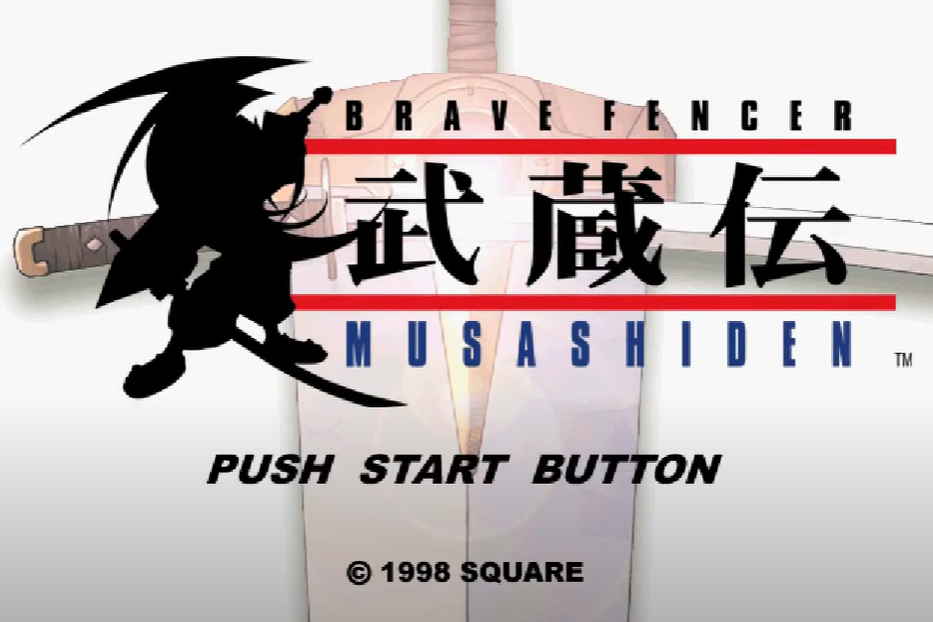The late 1990s were a golden era for the PlayStation 1, a console that transformed the gaming landscape with its impressive library of titles. Among the giants like Final Fantasy VII, Metal Gear Solid, and Resident Evil, some gems went unnoticed, overshadowed by these monumental releases. One such game, often overlooked yet cherished by those who discovered it, is Brave Fencer Musashi. This action RPG offers a unique mix of humor, engaging gameplay, and a distinctive art style that still resonates with fans today.
Platform | PlayStation |
|---|---|
Publisher | Square |
Genre | Action RPG |
Release Date | 10/31/1998 |
A Unique Blend of Action and RPG Elements
Brave Fencer Musashi, developed by Square (now Square Enix), was released in 1998. It stands out as a distinctive take on the action RPG genre, combining vibrant, cartoony aesthetics with an engaging combat system and an intriguing storyline. The game follows the adventure of Musashi, a young swordsman summoned to save the Allucaneet Kingdom from the clutches of the evil Thirstquencher Empire.
Gameplay Mechanics
The gameplay of Brave Fencer Musashi is where it truly shines. It straddles a fine line between action and RPG, offering real-time combat that was a refreshing change from the turn-based battles prevalent in the RPGs of that era
Real-Time Combat: Players control Musashi as he wields two swords, Fusion and Lumina. The game incorporates innovative mechanics, such as the ability to “absorb” enemy abilities using the Fusion sword, allowing players to use these powers strategically.
Day-Night Cycle: The game features a dynamic day-night cycle, influencing the behavior of NPCs and the availability of certain quests. This mechanic adds depth and realism to the game world.
Puzzle-Solving: Throughout the game, players encounter various puzzles that require creative thinking and skillful use of Musashi’s abilities. This element keeps the gameplay fresh and engaging.
Character Progression: Musashi gains experience points and levels up, enhancing his attributes and unlocking new abilities. Players can also collect items to increase Musashi’s health and focus on strategic growth.
Storyline and Characters
The narrative of Brave Fencer Musashi is both charming and humorous, filled with quirky characters and witty dialogue. The story is a classic tale of good versus evil, with a lighthearted twist. Musashi’s journey is peppered with memorable encounters, from befriending townsfolk to battling eccentric villains.
Musashi: A spirited and confident young swordsman, Musashi’s character is a blend of bravery and humor, making him an instantly likable protagonist.
Princess Fillet: The kingdom’s princess is pivotal in Musashi’s quest. Her character adds a touch of grace and determination to the storyline.
Thirstquencher Empire: The main antagonists, led by the nefarious Flatski, are portrayed with a comedic flair, making the conflict entertaining rather than ominous.
Visuals and Soundtrack
The visual style of Brave Fencer Musashi is one of its standout features. The game utilizes a vibrant color palette and anime-inspired character designs, creating a world that feels alive and inviting. Despite the limitations of the PS1 hardware, the game manages to convey a rich and immersive environment.
The soundtrack, composed by Tsuyoshi Sekito, complements the game’s whimsical tone. The music ranges from upbeat and adventurous themes to more somber and emotional pieces, enhancing the overall experience and immersion.
Why Is Brave Fencer Musashi Underrated?
Despite its innovative gameplay and charming presentation, Brave Fencer Musashi didn’t achieve the commercial success of its contemporaries. Several factors contributed to its underrated status:
Overshadowed by Major Releases*
: Released in the same year as blockbuster titles like Metal Gear Solid and The Legend of Zelda: Ocarina of Time, Brave Fencer Musashi struggled to capture the spotlight.
Limited Marketing: Compared to other Square titles, Brave Fencer Musashi received less promotional attention, affecting its visibility in the market.
Niche Appeal: The game’s unique blend of action and RPG elements may not have appealed to traditional fans of either genre, limiting its initial audience.
Critical Reception
While it may not have been a commercial juggernaut, Brave Fencer Musashi received positive reviews from critics and players alike. Many praised its innovative gameplay mechanics, engaging storyline, and charming visuals.
IGN: Praised the game for its engaging combat system and entertaining narrative, highlighting the unique mechanics that set it apart from other RPGs.
GameSpot: Appreciated the game’s humor and character design, noting its appeal to players looking for a lighthearted yet challenging adventure.
Players: Fans of the game often cite its nostalgic value and memorable characters as reasons for its enduring appeal, even years after its release.
The Legacy of Brave Fencer Musashi
Despite its initial reception, Brave Fencer Musashi has garnered a cult following over the years. Its unique blend of action, humor, and RPG elements has left a lasting impression on those who experienced it. The game even inspired a sequel, Samurai Legend Musashi, released for the PlayStation 2 in 2005, though it didn’t quite capture the same magic as the original.
In the modern gaming landscape, where remakes and remasters of classic titles are becoming increasingly common, there’s a growing demand for a revival of Brave Fencer Musashi. Fans eagerly await the possibility of a remaster or a new installment that could bring Musashi’s adventures to a new generation of gamers.
Brave Fencer Musashi remains one of the most underrated games on the PS1, a hidden gem waiting to be rediscovered by those who missed it the first time around. Its innovative gameplay, charming narrative, and memorable characters make it a standout title that deserves more recognition.
For those who appreciate a blend of action, humor, and RPG elements, Brave Fencer Musashi offers an experience that is both nostalgic and timeless. Whether you’re a longtime fan or a newcomer to the game, it’s worth taking a journey back to the Allucaneet Kingdom to see why this game has captured the hearts of many.



















